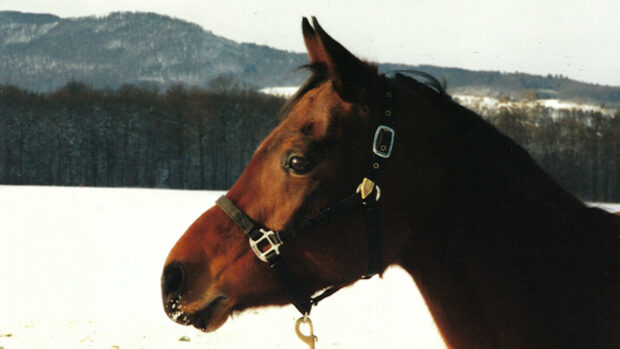Political opponents have united in the US in a historic attempt to end the “senseless, abject torture” of soring for good.
Animal Wellness Action (AWA), the Animal Wellness Foundation (AWF), the Center for a Humane Economy, Horses for Life Foundation and the American Horse Protection Society, as well as key figures in the Tennessee walking horse industry have agreed to support new measures aimed at preventing the horrific practices employed by some trainers, to try to achieve the “big lick” high-stepping gait.
H&H has reported on the Prevent All Soring Tactics (PAST) Act, which passed the US House last July but stalled in the Senate.
It was the most recent of more than 20 pieces of legislation and amendments to the 1970 Horse Protection Act, which aimed to prevent soring but left loopholes, to be introduced in the US government in the past 20 years.
“Not a single measure has been enacted, leaving a 50-year-old statute to govern management of regulated horse shows,” said a spokesman for AWA.
“The Horse Protection Amendments Act, H.R. 1157/S. 1455, introduced on seven occasions in either the House or Senate, and supported by the Tennessee walking horse industry, has also not advanced. Even attempts to finalise regulations to end soring have long-failed at every turn.”
In this current attempt, the stakeholders have come together to support compromise legislation that would ban action devices and dramatically reduce shoe sizes. It would also ban tail braces: in some horses, the muscles and tendons in the tail are severed, and the horses live in a contraption that maintains a full break in the tailbone. The horses are shown in the ring with a metal U-shaped stand under the tail to create high carriage.
“Bitter political adversaries have come together to break the logjam in Congress and put the nation on a path to end horse soring,” said Wayne Pacelle, president of AWA, and the Center for a Humane Economy. “If enacted, this deal will end the political stalemate in Congress and take the pain out of walking horse shows throughout the south.”
Frank Eichler, owner of Rising Star Ranch, the biggest Tennessee walking horse stud in the US, said the agreement between welfare organisations and the industry is “100 % about the welfare of the Tennessee walking horse, not about the horse politics”.
“Our pledge to support these reforms in statute represents the strongest commitment ever to move the industry forward and utilise science-based testing to eliminate soring. Third parties trying to thwart this common-sense agreement will only hurt the horse.”
AWA executive director Marty Irby, a former president of the Tennessee Walking Horse Breeders’ & Exhibitors’ Association, said the collaboration is the “greatest step we’ve seen in half a century to help end the scourge of soring, protect the horses, and allow the Tennessee walking horse to step soundly into the future”.
“Naysayers on both sides of the issue can either continue to throw rocks at those who are seeking viable reform or they can step up, join our discussion and help work together to allow the Tennessee walking horse to regain its rightful place as America’s horse,” he said.
“We invite every equine industry, veterinary, and animal protection stakeholder to the table of compromise.”
Horses for Life Foundation founder Allondra Stevens said the negotiations provide an opportunity to drive change, adding: “It’s incumbent on all of us to work together to ensure that American horses are no longer subjected to the senseless, abject torture of soring.”
Continues below…

Tennessee walking horse owner hopes to expose horrific soring practices in feature film
‘I think if we can tell this story, we could create national outcry, and force the Senate into action’

Trump stops rule to save Tennessee walking horses from soring
'Bureaucratic bungling' has meant the rule change has been put on hold by the White House

Subscribe to Horse & Hound magazine today – and enjoy unlimited website access all year round
The stakeholders have agreed to seek to achieve the following points:
- New and additional penalties for horse soring.
- Eliminating chains and action devices used to exacerbate pain derived from soring.
- Reducing the size of large, stacked shoes (currently 4.5-8 inches in height) to 1.5 inches at the toe and 2.5 inches in height (the same as other breeds that have shoe assemblies).
- Banning the use of tungsten, lead, or other heavy elements or composites in the shoe, and a ban on the use of metal bands to fix a heavy shoe to the hoof.
- Eliminating tail braces and tail docking (currently allowed and continuing in other breeds).
- Banning the possession of caustic chemicals and devices used in the soring process.
- Upgrading penalties for violators of the HPA.
- Creating a new organisation that will impose immediate penalties and fines on violators of the HPA while still allowing fines and penalties to be imposed through federal prosecution.
- Establishing an inspection program that parallels favors objective, science-based testing methods, as used by other breeds that conduct in-house testing.
- Employing independent inspectors licensed and certified by the US Department of Agriculture.
- Limiting the application of the legislation to Tennessee walking, racking and spotted saddle horses
Horse & Hound magazine, out every Thursday, is packed with all the latest news and reports, as well as interviews, specials, nostalgia, vet and training advice. Find how you can enjoy the magazine delivered to your door every week, plus options to upgrade to access our H&H Plus online service which brings you breaking news as it happens as well as other benefits.





